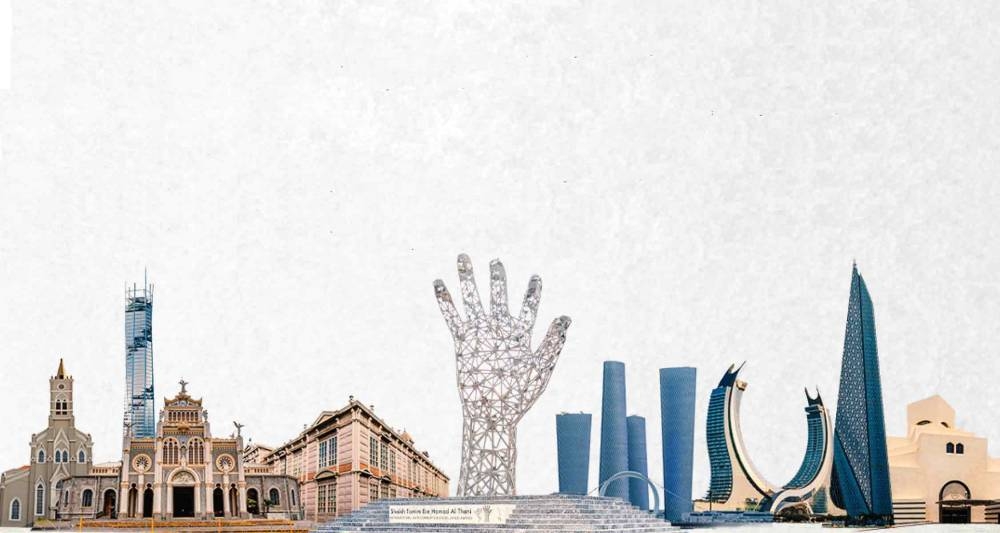Costa Rica is set to host the 8th edition of the ceremony to honour winners of Sheikh Tamim bin Hamad Al-Thani International Anti-Corruption Excellence Award Tuesday. Qatar is the global trailblazer of this award, which is the first-of-its-kind anti-corruption accolade at the global level.
The award has been positioning itself as an anti-corruption global event since its endorsement in 2016, and it is distributed, in co-ordination with UN Office on Drugs and Crime, to individuals and organisations that strenuously contribute to combating corruption and primarily encompasses five categories, chiefly lifetime or outstanding achievement, academic research and education, youth creativity and engagement, innovation and investigative Journalism, as well as safeguarding sports from corruption.
Granting this award coincides with the International Anti-Corruption Day, serving as an inspiring catalyst for numerous related initiatives launched by the State of Qatar at the regional and global levels, in pursuit of supporting anti-corruption international organisations and agencies, and identifying those who have demonstrated commitment and dedication to anti-corruption efforts, as well as protecting communities from scourges of economic, financial and administrative aberration and its bitter experiences.
The importance of the award stems from being a global invitation to counter corrupt individuals and embezzlers of public funds, encourage the efforts of all individuals who pledged to endure the consequences of those who tamper with resources and wealth of nations, propagate the culture of transparency and integrity, deepening Qatar's values, upholding its obligations both domestically and globally and reinforcing the concept of accountability and justice.
Undoubtedly, the award is a culmination of the Qatar National Vision 2030 and helps disseminate its objectives at the domestic, regional, and global levels to foster good governance, transparency, enforce justice and uproot the scourge of corruption, along with all its risks that imperil development projects, future of nations, and welfare of their peoples.
The prevalence of corruption conspicuously erodes the foundations of community stability, thereby creating obstacles that impede the community's progress, and drive a wedge of disintegration between the people and state institutions.
Additionally, the award shines spotlight on ideal conditions, required measures and regulated practices that align with the spirit of law and primarily aims to pay homage to successful experiences and raise awareness at individual, group and organisational levels, as well as recognize all initiatives that leave an extraordinary and enduring footprint to safeguard communities against the consequences of corruption. It also catalyses governments, academic and media institutions, as well as civil society to pursue the principles of the UN Convention against Corruption (UNCAC) and collaboratively enforce them.
The award is granted based on contexts that track individuals and entities who have conducted research, published works, or made contributions or experienced anti-corruption verifiable efforts. Additionally, the criteria for awarding pursue international standards and notions aligned with the United Nations' Sustainable Development Goals 2030 (SDGs), that encourage establishing peaceful communities that respect everyone without exclusion or marginalisation, offering access to justice, ensuring fair distribution of countries' resources, investing their wealth without discrimination, and building effective institutions that are subject to monitoring and accountability at all levels.
More tellingly, the Award has received a vast global and UN interest, thanks to the positive practices and competitive field in promoting the anti-corruption culture utilizing cutting-edge technologies that evidently transcend the conventional ones and outpace evasion attempts from the necessary accountability, as the latter is essentially required to create clean environments, as well as a free and productive management to foster the culture of scientific research and experiences that respect rule of law.
Through its previous editions, the Award has been marked by honoring extraordinary efforts in the lifetime achievement Award category, which recognizes individuals whose anti-corruption experiences have had a significant impact through the enforcement of decisive and effective measures, with the curators of the Award embarking on sharing these achievements at global forums and platforms, and publicly granting their Award so as to encourage the replication of these productive practices and pursue their model.
In the category of research and academic educational materials, the Award seeks to combat corruption through a variety of academic research and educational tools, as long as corruption can be fought more effectively through understanding and studying the underlying causes and factors that engender corruption, as well as methods that can trace its origins and disrupt its effects.
As for the Award category for youth creativity and engagement in combating corruption, the Award focuses on the importance of engaging younger generations, such as youth, university students, and young employees, in anti-corruption efforts, as well as recognizing and encouraging projects supported by non-governmental organizations or civil society. These projects range from youth initiatives to combat corruption, to summer camps, school campaigns, or awareness-raising posters aimed at promoting youth awareness.
The Award category for innovation or investigative journalism in combating corruption seeks to reward those who have advanced the tools necessary to help fight corruption through their journalistic endeavors. Additionally, combating corruption not only requires the will of individuals or organizations, but also requires anti-corruption tools, as long as in-depth investigative journalism plays a critical role by exposing and documenting instances of corruption and money laundering and identifying the entities that represent the tip of the corruption iceberg, generating extraordinary works that have been able to identify these entities.
In the area of safeguarding sports from corruption, The Award aims to pay tribute to individuals and entities who have worked to protect sports from corruption domestically and regionally who have either made a tangible impact in reducing risks, or have conducted research on the impacts of corruption on key aspects of sports and its sectors, which are vital to the modern advancement of nations and well-being of their peoples.
Qatar
Sheikh Tamim award promotes global anti-corruption efforts
Costa Rica set to host Sheikh Tamim bin Hamad Al-Thani International Anti-Corruption Excellence Award ceremony

